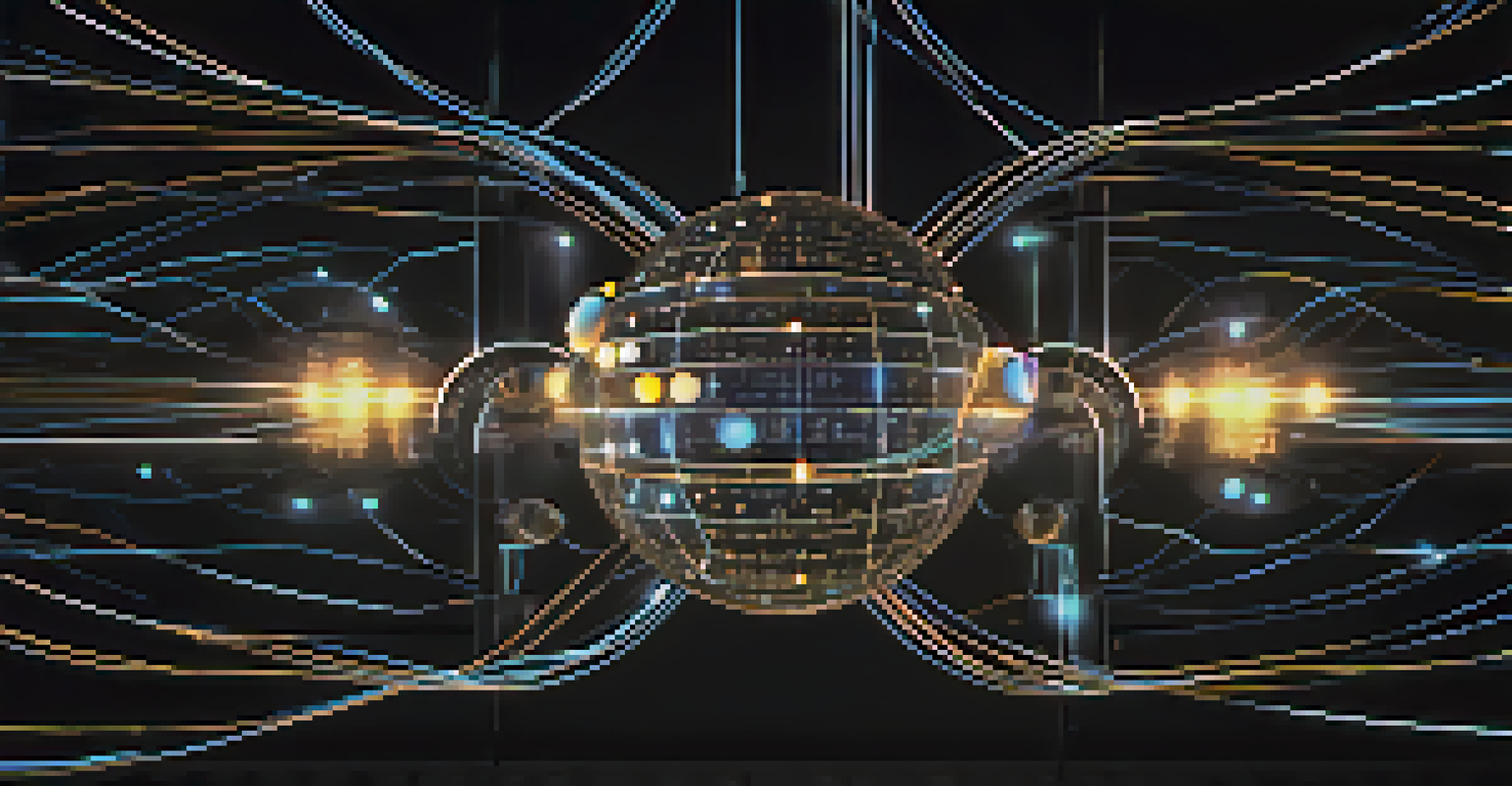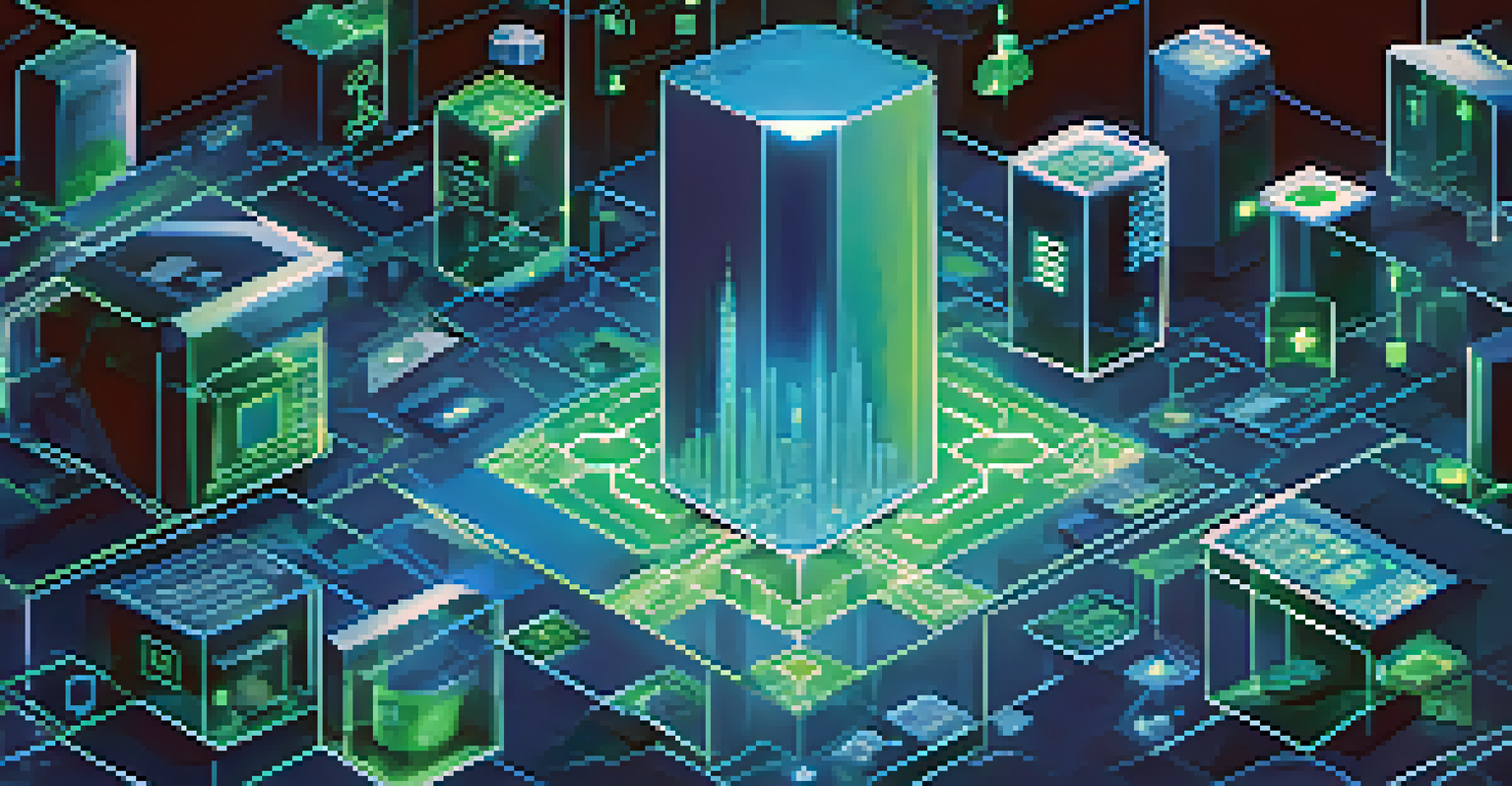The Role of Decentralized Oracles in Blockchain Security

Understanding Decentralized Oracles and Their Purpose
Decentralized oracles serve as crucial bridges between blockchains and real-world data, enabling smart contracts to function effectively. Imagine them as interpreters, translating outside information into a language that blockchain can understand. Without oracles, smart contracts would be limited to the data available on the blockchain, which significantly narrows their functionality.
Without oracles, smart contracts would be limited to the data available on the blockchain, which significantly narrows their functionality.
These oracles gather information from multiple sources, ensuring that the data fed into the blockchain is accurate and trustworthy. By decentralizing this process, they reduce the risk of a single point of failure, which is a common vulnerability in traditional systems. This decentralized approach enhances the integrity of the data being used, fortifying the overall security of the blockchain.
As blockchain technology continues to evolve, the role of decentralized oracles becomes increasingly important. They not only facilitate the flow of critical information but also contribute to the resilience of decentralized systems. Understanding their functions is the first step towards appreciating how they reinforce security in the blockchain ecosystem.
The Importance of Security in Blockchain Applications
Blockchain technology is heralded for its security features, but this does not make it immune to attacks or vulnerabilities. Just like a house with strong walls can still be compromised if the doors are weak, blockchains need robust mechanisms to protect against data manipulation. Security breaches can undermine trust and lead to significant financial losses, making it essential to prioritize security measures.

Smart contracts, which automate processes on the blockchain, rely heavily on accurate data. If the data fed into these contracts is compromised, the outcomes could be disastrous. For instance, if a price feed for a decentralized finance (DeFi) platform is manipulated, users could face unexpected losses, highlighting the need for secure data inputs.
Decentralized Oracles as Data Bridges
Decentralized oracles connect blockchains to real-world data, enhancing the functionality of smart contracts.
Thus, ensuring the integrity of data is not just a technical necessity; it's a fundamental prerequisite for creating trust within blockchain applications. As more industries adopt blockchain solutions, the emphasis on security will only intensify, making the role of decentralized oracles even more significant.
How Decentralized Oracles Enhance Data Integrity
Decentralized oracles enhance data integrity by sourcing information from multiple independent entities. Think of it like gathering opinions from various experts instead of relying on a single source; this approach helps filter out biases and inaccuracies. By using a consensus mechanism, these oracles ensure that only the most reliable data is transmitted to the blockchain.
Ensuring the integrity of data is not just a technical necessity; it's a fundamental prerequisite for creating trust within blockchain applications.
Furthermore, the use of multiple data sources creates a layer of redundancy, which adds to the security. If one source provides faulty data, the others can counterbalance it, ensuring that the final input remains trustworthy. This redundancy is crucial in protecting against malicious actors who may attempt to inject false information into the system.
Ultimately, the reliable and secure data provided by decentralized oracles contributes to the overall robustness of blockchain applications. As developers seek to build more complex and secure solutions, the integration of these oracles will likely become a standard practice, making them indispensable in the blockchain landscape.
Mitigating Risks with Decentralized Oracles
One of the primary risks in blockchain technology is the potential for centralized points of failure. Decentralized oracles help mitigate this risk by distributing the data sourcing process across multiple nodes. This way, if one node fails or is compromised, others can still provide reliable data, maintaining the integrity of the system.
Additionally, decentralized oracles can implement various security measures, such as cryptographic proofs, to ensure that the data they supply is tamper-proof. This adds an extra layer of protection against data manipulation, which is critical for maintaining trust in blockchain applications. By ensuring that data is both accurate and secure, decentralized oracles play a vital role in enhancing the overall security of the blockchain.
Enhancing Security Through Redundancy
By gathering information from multiple sources, decentralized oracles improve data integrity and protect against manipulation.
In essence, decentralized oracles not only reduce risks associated with data input but also foster a more resilient ecosystem. As the demand for secure blockchain solutions grows, the ability of these oracles to mitigate risks will become increasingly valuable, making them essential players in the blockchain security narrative.
Real-World Applications of Decentralized Oracles
Decentralized oracles are already making waves in various industries, proving their value in real-world applications. For example, in decentralized finance (DeFi), they provide accurate price feeds for assets, enabling safe trading and lending practices. Without trustworthy price data, users would be at risk of significant financial losses due to market manipulation.
Another notable application is in insurance, where decentralized oracles can verify real-world events, such as flight delays or natural disasters, triggering automatic payouts. This not only streamlines the claims process but also ensures that payments are made based on accurate, real-time data. Such use cases highlight the practical benefits of decentralized oracles in enhancing operational efficiency and security.
As industries continue to explore blockchain technology, the integration of decentralized oracles is likely to expand. Their ability to connect real-world data with blockchain applications makes them invaluable across various sectors, reinforcing the security and reliability of decentralized solutions.
Challenges Facing Decentralized Oracles
Despite their advantages, decentralized oracles face several challenges that can hinder their effectiveness. One significant issue is the need for a reliable consensus mechanism, which is essential for ensuring the accuracy of the data they provide. If the consensus process is flawed, it could lead to incorrect data being relayed to the blockchain, compromising security.
Additionally, the integration of decentralized oracles into existing blockchain ecosystems can be complex. Developers must ensure that these oracles are compatible with various protocols and can function seamlessly within the broader system. This can pose technical challenges that require careful planning and execution.
Real-World Applications Drive Adoption
Decentralized oracles are essential in various industries, enabling secure operations in finance and insurance.
Moreover, as the demand for decentralized oracles grows, so does the need for standardization and regulation. Establishing industry-wide standards will help ensure that these oracles operate consistently and securely. Addressing these challenges is crucial for maximizing the potential of decentralized oracles in enhancing blockchain security.
The Future of Decentralized Oracles in Blockchain Security
Looking ahead, the future of decentralized oracles appears promising, especially in the context of blockchain security. As more industries adopt blockchain technology, the need for reliable data sources will continue to rise. Decentralized oracles are well-positioned to meet this demand, providing the necessary infrastructure to enhance trust and security across various applications.
Furthermore, advancements in technology may lead to more sophisticated decentralized oracle solutions. Improved consensus mechanisms and innovative data verification methods could enhance their reliability and effectiveness, making them even more integral to blockchain ecosystems. This evolution will likely pave the way for new use cases and applications that we can't yet imagine.

In conclusion, as the blockchain landscape evolves, decentralized oracles will play a critical role in shaping its future. By ensuring data integrity and security, they will help build a more resilient and trustworthy blockchain ecosystem, ultimately driving wider adoption and innovation in the space.